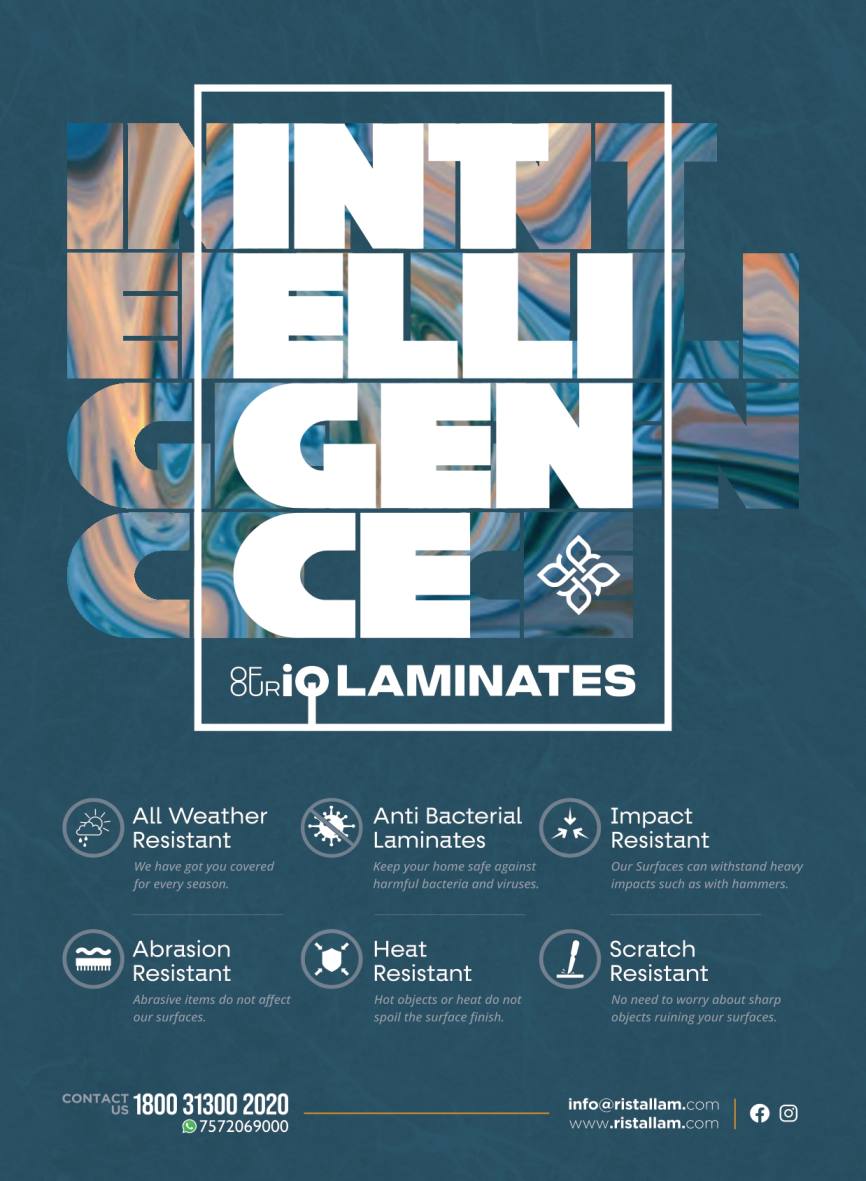
Closure of Industries is impermissible for want of prior Environmental Clearance
- मार्च 26, 2022
- 0
The Supreme Court on 25 march 2022 set aside an order of the National Green Tribunal (NGT) directing closure of industries in Haryana for want of prior Environmental Clearance (EC) [Pahwa Plastics Pvt Ltd. & Anr. v Dastak NGO & Ors.].
The primary question of law considered by the Bench of Justice Indira Banerjee और JK Maheshwari in the appeal was whether an establishment employing about 8,000 workers, which has been set up pursuant to Consent to Establish (CTE) and Consent to Operate (CTO) from the concerned statutory authority and has applied for ex post-facto EC can be closed down pending issuance of EC, even though it may not cause pollution and/or may be found to comply with the required pollution norms.
The top court found that the Environment (Protection) Act, 1986 does not prohibit ex post facto grant of EC. Further, it observed that the interest of citizens who depend on employment in the industries cannot be ignored.
“The 1986 Act does not prohibit ex post facto Environmental Clearance. Grant of ex post facto EC in accordance with law, in strict compliance with Rules, Regulations, Notifications and/or applicable orders, in appropriate cases, where the projects are in compliance with, or can be made to comply with environment norms, is in our view not impermissible. The Court cannot be oblivious to the economy or the need to protect the livelihood of hundreds of employees and others employed in the project and others dependent on the project, if such projects comply with environmental norms,” the Court said in its judgement.
It opined that the NGT erred in law by taking a rigid view without regard to the consequences of the same.
“Ex post facto EC should not ordinarily be granted, and certainly not for the asking. At the same time ex post facto clearances and/or approvals cannot be declined with pedantic rigidity, regardless of the consequences of stopping the operations. This Court is of the view that the NGT erred in law in directing that the units cannot be allowed to function till compliance of the statutory mandate,” the Court said.
Therefore, it allowed the appeals and directed the government to take a decision on the appellants’ application within a period of one month.
Until such time, it was directed that the operation of the concerned units should be allowed to continue. It was also ordered that the electricity connection at the plants must be restored. However, If the application for EC is rejected on the ground of any contravention on the part of the appellants, it will be open to respondents to disconnect supply of electricity.
The Court noted that even though the application for EC had progressed significantly, it had been contended by the counsel appearing for the Union of India that the appellants had not submitted its final application for EC after public hearing.
“It is not clear what more was required of the appellants. Be that as it may, the Union of India shall, within 3 working days of receiving a copy of this judgement and order inform the appellants in writing if anything further is required to be done by the appellants The appellants shall within a week there after do the needful. The final decision on the application of the appellants for EC shall be taken within 3 weeks thereafter,” the Court ordered in this regard.
The Court’s judgement came on a batch of appeals under against an order passed by the Principal Bench of the National Green Tribunal, New Delhi, inter alia, holding that establishments such as the manufacturing units of the appellants, which did not have prior Environmental Clearance (EC) could not be allowed to operate.
“An establishment contributing to the economy of the country and providing livelihood ought not to be closed down only on the ground of the technical irregularity ofnot obtaining prior Environmental Clearance irrespective of whether or notthe unit actually causes pollution“, the judgement stated.
पर्यावरण संरक्षण अधिनियम कार्याेत्तर पर्यावरणीय मंजूरी देने पर रोक नहीं लगाता: सुप्रीम कोर्ट
सुप्रीम कोर्ट ने शुक्रवार को नेशनल ग्रीन ट्रिब्यूनल (एनजीटी) के एक आदेश को रद्द कर दिया, जिसमें हरियाणा में पूर्व पर्यावरण मंजूरी (ईसी) (पाहवा प्लास्टिक्स प्राइवेट लिमिटेड और दस्तक एनजीओ और अन्य) के लिए उद्योगों को बंद करने का निर्देश दिया गया था।
अपील में न्यायमूर्ति इंदिरा बनर्जी और जेके माहेश्वरी की खंडपीठ द्वारा विचार किए गए कानून का प्राथमिक प्रश्न यह था कि क्या लगभग 8,000 श्रमिकों को रोजगार देने वाला एक प्रतिष्ठान, जिसे स्थापित करने की सहमति (सीटीई) और संचालन की सहमति (सीटीओ) के अनुसार स्थापित किया गया है। संबंधित वैधानिक प्राधिकरण और पूर्व के बाद के लिए आवेदन किया है ईसी जारी होने तक ईसी को बंद किया जा सकता है, भले ही यह प्रदूषण का कारण न हो और/या आवश्यक प्रदूषण मानदंडों का पालन करने के लिए पाया जा सकता है।
शीर्ष अदालत ने पाया कि पर्यावरण (संरक्षण) अधिनियम, 1986 ईसी के कार्याेत्तर अनुदान को प्रतिबंधित नहीं करता है। इसके अलावा, यह देखा गया कि उद्योगों में रोजगार पर निर्भर नागरिकों के हितों को नजरअंदाज नहीं किया जा सकता है।
‘‘1986 अधिनियम कार्याेत्तर पर्यावरणीय मंजूरी को प्रतिबंधित नहीं करता है। नियमों, विनियमों, अधिसूचनाओं और/या लागू आदेशों के सख्त अनुपालन में, कानून के अनुसार पूर्व कार्याेत्तर ईसी का अनुदान, उपयुक्त मामलों में, जहां परियोजनाएं अनुपालन में हैं, या पर्यावरण मानदंडों का पालन करने के लिए बनाया जा सकता है, हमारे विचार में अनुमेय नहीं है। न्यायालय अर्थव्यवस्था या परियोजना में कार्यरत सैकड़ों कर्मचारियों और अन्य लोगों और परियोजना पर निर्भर अन्य लोगों की आजीविका की रक्षा करने की आवश्यकता से बेखबर नहीं हो सकता है, अगर ऐसी परियोजनाएं पर्यावरण मानदंडों का अनुपालन करती हैं,’’ अदालत ने अपने फैसले में कहा।
पर्यावरण संरक्षण अधिनियम, 1986 कार्याेत्तर पर्यावरणीय मंजूरी को प्रतिबंधित नहीं करता है।
उच्चतम न्यायालय
इसने कहा कि एनजीटी ने इसके परिणामों की परवाह किए बिना कठोर दृष्टिकोण अपनाकर कानून में गलती की।
‘‘पूर्व पोस्ट फैक्टो ईसी सामान्य रूप से प्रदान नहीं किया जाना चाहिए, और निश्चित रूप से पूछने के लिए नहीं। उसी समय पूर्व कार्याेत्तर मंजूरी और/या अनुमोदन को पांडित्यपूर्ण कठोरता के साथ अस्वीकार नहीं किया जा सकता है, भले ही संचालन को रोकने के परिणामों की परवाह किए बिना। यह न्यायालय है यह विचार कि एनजीटी ने यह निर्देश देते हुए कानून में गलती की है कि इकाइयों को वैधानिक जनादेश के अनुपालन तक काम करने की अनुमति नहीं दी जा सकती है,’’ कोर्ट ने कहा।
इसलिए, इसने अपीलों की अनुमति दी और सरकार को एक महीने की अवधि के भीतर अपीलकर्ताओं के आवेदन पर निर्णय लेने का निर्देश दिया।
तब तक यह निर्देश दिया गया था कि संबंधित इकाइयों का संचालन जारी रखा जाए। यह भी आदेश दिया गया कि संयंत्रों में बिजली कनेक्शन बहाल किया जाए।
हालांकि, यदि अपीलकर्ताओं की ओर से किसी भी उल्लंघन के आधार पर ईसी के लिए आवेदन खारिज कर दिया जाता है, तो यह प्रतिवादियों के लिए बिजली की आपूर्ति को डिस्कनेक्ट करने के लिए खुला होगा।
कोर्ट ने कहा कि भले ही चुनाव आयोग के लिए आवेदन में काफी प्रगति हुई हो, लेकिन भारत संघ की ओर से पेश वकील ने यह तर्क दिया था कि अपीलकर्ताओं ने जन सुनवाई के बाद चुनाव आयोग के लिए अपना अंतिम आवेदन जमा नहीं किया था।
‘‘यह स्पष्ट नहीं है कि अपीलकर्ताओं के लिए और क्या आवश्यक था। जैसा भी हो, भारत संघ, इस निर्णय और आदेश की एक प्रति प्राप्त करने के 3 कार्य दिवसों के भीतर अपीलकर्ताओं को लिखित रूप में सूचित करेगा यदि कुछ और करने की आवश्यकता है अपीलकर्ताओं द्वारा किया गया एक सप्ताह के भीतर आवश्यक कार्रवाई करने के बाद। ईसी के लिए अपीलकर्ताओं के आवेदन पर अंतिम निर्णय उसके बाद 3 सप्ताह के भीतर लिया जाएगा, ‘‘कोर्ट ने इस संबंध में आदेश दिया।
कोर्ट का फैसला नेशनल ग्रीन ट्रिब्यूनल, नई दिल्ली की प्रिंसिपल बेंच द्वारा पारित एक आदेश के खिलाफ अपीलों के एक बैच पर आया, अन्य बातों के साथ, यह मानते हुए कि अपीलकर्ताओं की निर्माण इकाइयाँ, जिनके पास पूर्व पर्यावरण मंजूरी नहीं थी (ईसी) को संचालित करने की अनुमति नहीं दी जा सकती।
अपीलकर्ताओं का प्रतिनिधित्व करने वाले वरिष्ठ अधिवक्ता निधेश गुप्ता ने तर्क दिया था कि वैध सीटीओ के आधार पर संचालित होने वाली इकाइयों को बंद नहीं किया जाना चाहिए।
यह भी बताया गया कि इलेक्ट्रोस्टील स्टील्स लिमिटेड बनाम भारत संघ में 2021 के फैसले में, सुप्रीम कोर्ट ने कहा था कि उपयुक्त मामलों में पूर्व-पोस्ट फैक्टो पर्यावरणीय मंजूरी उन इकाइयों को दी जा सकती है जो पहले से ही संचालन में हैं, जिनके पास वैधानिक अनुमति है। जो अन्यथा प्रदूषण कानूनों का उल्लंघन नहीं कर रहे हैं और पूर्व ईसी प्राप्त नहीं करने की तकनीकी अनियमितता को छोड़कर, वे अन्यथा पर्यावरण कानूनों का पूरी तरह से अनुपालन कर रहे हैं।
अपीलकर्ताओं का मामला पूरी तरह से उक्त निर्णय से आच्छादित है, यह तर्क दिया गया था।
इसके अलावा, यह प्रस्तुत किया गया था कि पर्यावरण, वन और जलवायु परिवर्तन मंत्रालय ने मार्च 2020 में मसौदा अधिसूचना जारी की थी जो ऐसे मामलों से निपटने के लिए एक तंत्र प्रदान करती है, जहां इकाइयां पूर्व ईसी के बिना संचालन में थीं।
अपीलकर्ता के तर्कों में योग्यता पाते हुए, शीर्ष अदालत ने अपील की अनुमति दी।
इसने यह भी नोट किया कि अपीलकर्ता लगभग 8,000 कर्मचारियों की नियुक्ति करते हैं और उनका वार्षिक कारोबार बहुत बड़ा है।
निर्णय में कहा गया है, ‘‘देश की अर्थव्यवस्था में योगदान देने वाले और आजीविका प्रदान करने वाले प्रतिष्ठान को केवल तकनीकी अनियमितता के आधार पर बंद नहीं किया जाना चाहिए, चाहे वह इकाई वास्तव में प्रदूषण का कारण हो या नहीं’’, पूर्व पर्यावरणीय मंजूरी प्राप्त नहीं कर रही है।


































































